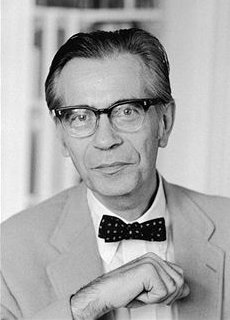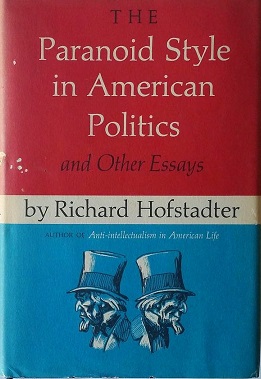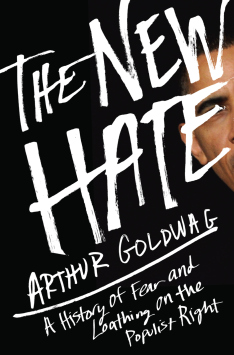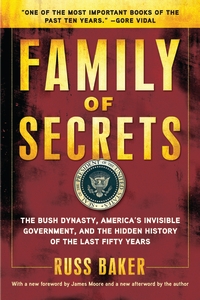Further reading
- Duthie, James A. (2012). A Handbook for History Teachers. Lanham, MD: University Press of America. p. 38. ISBN 978-0761859901. OCLC 806521506.
| Formal |
| ||||||||||||||||||||||||||||||||
|---|---|---|---|---|---|---|---|---|---|---|---|---|---|---|---|---|---|---|---|---|---|---|---|---|---|---|---|---|---|---|---|---|---|
| Informal |
| ||||||||||||||||||||||||||||||||
The furtive fallacy is an informal fallacy of emphasis in which historical outcomes are asserted to be the result of hidden (furtive) misconduct or wrongdoing by decision makers. Historian David Hackett Fischer identified it as the belief that significant facts of history are necessarily sinister, and that "history itself is a story of causes mostly insidious and results mostly invidious." Although it may lead to a conspiracy theory, the fallacy itself consists in the assumption that misdeeds lurk behind every page of history. In its extreme form, the fallacy represents general paranoia. [1]
Fischer identified several examples of the fallacy, with particular attention to the works of Charles A. Beard and his critic Forrest McDonald. Beard had argued that Franklin Roosevelt secretly and intentionally maneuvered the country into World War II. Although some critics accused him of falsifying the historical record, Fischer believed that Beard was merely pursuing a long-held misconception about how history occurs. McDonald, meanwhile, offered sensational descriptions of the early United States in which history unfolded through episodes of corruption and drunkenness. [1]
Richard Hofstadter discussed the fallacy before Fischer, although not by name. In reviewing histories from the Progressive Era, Hofstadter noted that the progressive historians tended to assume that reality was always hidden and ignored, being determined by bribes, rebates, and secret business deals. [1] [2]
A modification of the furtive fallacy holds that when the historical record provides no evidence explaining a particular set of events, this is itself evidence of a furtive cause. [3]
The idea of the furtive fallacy was criticized by Jeffrey M. Bale, author of the book The Darkest Sides of Politics, who cited the risk of historians underestimating the influence of political secret societies, vanguard parties, and intelligence agencies. [4]

A conspiracy theory is an explanation for an event or situation that asserts the existence of a conspiracy by powerful and sinister groups, often political in motivation, when other explanations are more probable. The term generally has a negative connotation, implying that the appeal of a conspiracy theory is based in prejudice, emotional conviction, or insufficient evidence. A conspiracy theory is distinct from a conspiracy; it refers to a hypothesized conspiracy with specific characteristics, including but not limited to opposition to the mainstream consensus among those who are qualified to evaluate its accuracy, such as scientists or historians.

Historiography is the study of the methods of historians in developing history as an academic discipline, and by extension is any body of historical work on a particular subject. The historiography of a specific topic covers how historians have studied that topic using particular sources, techniques, and theoretical approaches. Scholars discuss historiography by topic—such as the historiography of the United Kingdom, that of WWII, the pre-Columbian Americas, early Islam, and China—and different approaches and genres, such as political history and social history. Beginning in the nineteenth century, with the development of academic history, there developed a body of historiographic literature. The extent to which historians are influenced by their own groups and loyalties—such as to their nation state—remains a debated question.
A faulty generalization is an informal fallacy wherein a conclusion is drawn about all or many instances of a phenomenon on the basis of one or a few instances of that phenomenon. It is similar to a proof by example in mathematics. It is an example of jumping to conclusions. For example, one may generalize about all people or all members of a group, based on what one knows about just one or a few people:
Argument from fallacy is the formal fallacy of analyzing an argument and inferring that, since it contains a fallacy, its conclusion must be false. It is also called argument to logic, the fallacy fallacy, the fallacist's fallacy, and the bad reasons fallacy.

Charles Austin Beard was an American historian and professor, who wrote primarily during the first half of the 20th century. A history professor at Columbia University, Beard's influence is primarily due to his publications in the fields of history and political science. His works included a radical re-evaluation of the Founding Fathers of the United States, whom he believed to be more motivated by economics than by philosophical principles. Beard's most influential book, An Economic Interpretation of the Constitution of the United States (1913), has been the subject of great controversy ever since its publication. While it has been frequently criticized for its methodology and conclusions, it was responsible for a wide-ranging reinterpretation of early American history.

Richard Hofstadter was an American historian and public intellectual of the mid-20th century.
In literary theory and aesthetics, authorial intent refers to an author's intent as it is encoded in their work. Authorial intentionalism is the view that an author's intentions should constrain the ways in which a text is properly interpreted. Opponents, who undermined its hermeneutical importance, have labelled this position the intentional fallacy and count it among the informal fallacies.

The New World Order (NWO) is a conspiracy theory that hypothesizes a secretly emerging totalitarian world government.
The historian's fallacy is an informal fallacy that occurs when one assumes that decision makers of the past viewed events from the same perspective and having the same information as those subsequently analyzing the decision. It is not to be confused with presentism, a similar but distinct mode of historical analysis in which present-day ideas are projected into the past. The idea was first articulated by British literary critic Matthew Arnold in 1880 and later named and defined by American historian David Hackett Fischer in 1970.

Vernon Louis Parrington was an American literary historian and scholar. His three-volume history of American letters, Main Currents in American Thought, won the Pulitzer Prize for History in 1928 and was one of the most influential books for American historians of its time.
David Hackett Fischer is University Professor of History Emeritus at Brandeis University. Fischer's major works have covered topics ranging from large macroeconomic and cultural trends to narrative histories of significant events to explorations of historiography.
In literary and historical analysis, presentism is a pejorative term for the introduction of present-day ideas and perspectives into depictions or interpretations of the past. Some modern historians seek to avoid presentism in their work because they consider it a form of cultural bias, and believe it creates a distorted understanding of their subject matter. The practice of presentism is regarded by some as a common fallacy when writing about the past.

"The Paranoid Style in American Politics" is an essay by American historian Richard J. Hofstadter, first published in Harper's Magazine in November 1964. It was the title essay in a book by the author the following year. Published soon after Senator Barry Goldwater won the Republican presidential nomination over the more moderate Nelson A. Rockefeller, Hofstadter's article explores the influence of a particular style of conspiracy theory and "movements of suspicious discontent" throughout American history.
In United States politics, the radical right is a political preference that leans towards extreme conservatism, white supremacism, or other right-wing to far-right ideologies in a hierarchical structure paired with conspiratorial rhetoric alongside traditionalist and reactionary aspirations. The term was first used by social scientists in the 1950s regarding small groups such as the John Birch Society in the United States, and since then it has been applied to similar groups worldwide. The term "radical" was applied to the groups because they sought to make fundamental changes within institutions and remove persons and institutions that threatened their values or economic interests from political life.

The New Hate: A History of Fear and Loathing on the Populist Right is a 2012 political science and public affairs non-fiction book by the writer and editor Arthur S. Goldwag, published by Pantheon Books. The book discusses the history of conspiracy theories among right-wing populists in the United States, in particular what Goldwag considers personalized economic conspiracy theories driven by fear and hate within the radical right and the contemporary Tea Party movement.

Family of Secrets is a book by Russ Baker. Published by Bloomsbury Press in 2008, it describes alleged connections between the Bush family and the Central Intelligence Agency. The book asserts that President George H.W. Bush was linked to the Watergate scandal and the assassination of John F. Kennedy. Family of Secrets was poorly received by critics.
Consensus history is a term used to define a style of American historiography and classify a group of historians who emphasize the basic unity of American values and the American national character and downplay conflicts, especially conflicts along class lines, as superficial and lacking in complexity. The term originated with historian John Higham, who coined it in a 1959 article in Commentary titled "The Cult of the American Consensus". Consensus history saw its primary period of influence in the 1950s, and it remained the dominant mode of American history until historians of the New Left began to challenge it in the 1960s.
Conspiracy theories in United States politics are beliefs that an event or situation in US politics is the result of secretive collusion by powerful people striving to harm a rival group or undermine society in general.